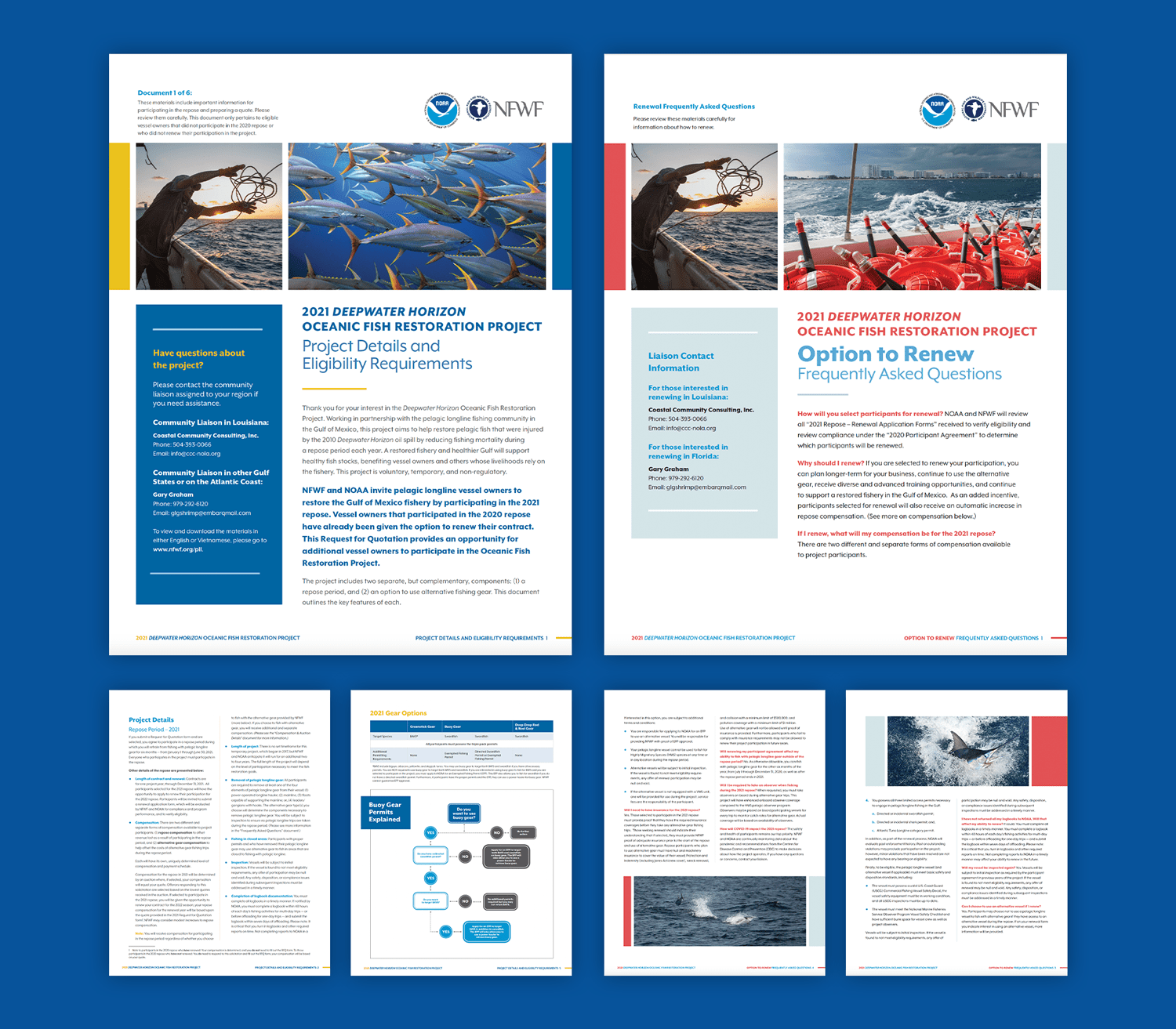Supporting a Healthier Gulf
Overview
The Hatcher Group is proud to support the Deepwater Horizon Oceanic Fish Restoration Project, which has successfully helped restore fish in the Gulf, thanks to participation from area pelagic (open sea) longline fishermen who have reduced fishing pressure on pelagic fish species. As a result of the 2010 Deepwater Horizon oil spill, many pelagic fish in the Gulf were injured or killed. Fishermen are stepping up to restore fish affected by the oil spill through this project — organized by the National Fish and Wildlife Foundation (NFWF) and the National Oceanic and Atmospheric Administration (NOAA) — which has focused on reducing bycatch (incidental catch of nontargeted species) to support healthy, robust populations of fish. Since 2017, about half of the pelagic longline fleet in the Gulf has chosen to participate in the temporary project, which has two parts: 1.) The initiative compensates volunteer vessel owners to refrain from using pelagic longline gear during a six-month repose each year. 2.) During the repose, participants have the option to continue to fish using alternative gear. NFWF and NOAA needed help communicating this complex project to their targeted audiences, including fishermen, many of whom lack trust in federal agencies and are non-English speaking.
The Hatcher Group has led the communications work for the project since its inception — researching, developing, and executing a communications strategy, and creating easy-to-understand materials to engage participants and other target audiences. Our work has changed behaviors and shown proven results. Each year, more than half of eligible vessel owners have applied to participate in the project. The project has exceeded its goal every year (2017–2019), allowing approximately 25,000 pounds of fish per participating vessel to remain in the gulf each year. Hatcher rebid on this work in 2019, due to government contract requirements, and won the contract through the remainder of the project, which will likely end in 2022.
Capabilities
Strategic Communications
Creative
Creative
Hatcher combined subject matter expertise with thoughtful design to create a series of resources that are fresh, engaging, and eye-catching. We created infographics to best communicate the complex material and contracted with Jay Fleming Photography to capture photos of participants in action.

Strategic Communications
Hatcher needed a smart strategy to engage potential participants in the project, many of whom spoke Vietnamese, and help them understand the somewhat complex initiative. We interviewed potential participants, members of academia and environmental organizations, as well as seafood dealers and restaurant owners. We developed and executed a communications strategy and implementation plan, and created a suite of easy-to-understand materials to educate and engage participants and other target audiences. Working with NFWF and NOAA team members, we created strategies to reach targeted audiences, including dealers, commercial fishing organizations, academia, and nongovernmental organizations. We also created a crisis communications plan for project leaders to quickly and effectively communicate with their audiences should the need arise.
Our Impact
- Each year, more than half of eligible vessel owners have applied to participate in the project.
- Thanks to the vessel owners’ participation, the project has exceeded its restoration goals, allowing approximately 25,000 pounds of fish per participating vessel to remain in the gulf each year.
- Although alternative gear was found to have lower catch rates than pelagic longline gear, almost 90% of all fish discarded from alternative gear were released alive.
- Participating fishermen have used and tested alternative gear types while helping NOAA and NFWF better understand how the gear works. According to one participant: “I am very invested in helping make alternative gear more effective for future generations of fishermen.”